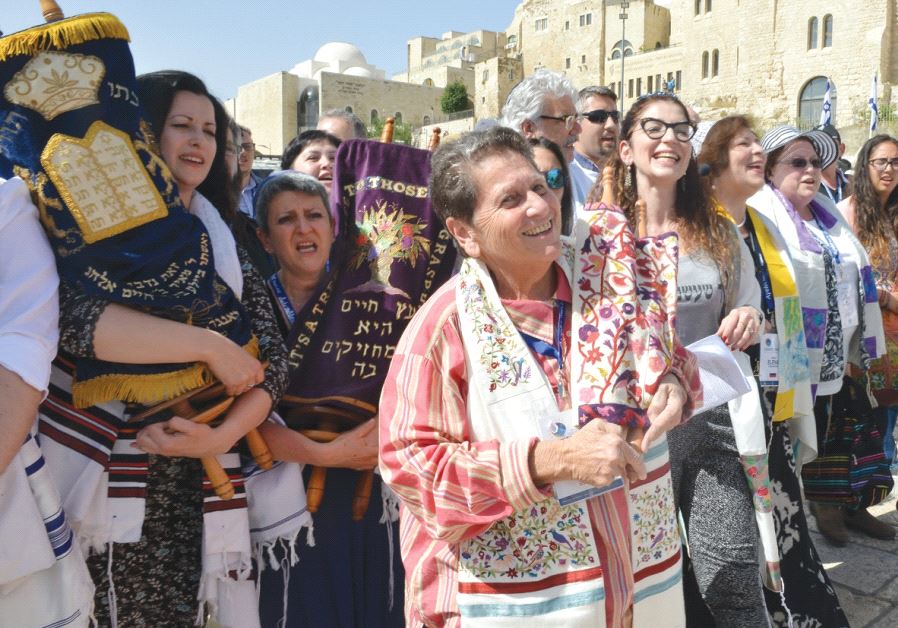Progressive Jewish group brings, reads Torahs at Western Wall despite ban
“Jerusalem unites all of us, but it also obligates all of us."
 MEMBERS OF THE World Union for Progressive Judaism pray in the Western Wall plaza(photo credit: YEHUDIT HOFMAN)Updated:
MEMBERS OF THE World Union for Progressive Judaism pray in the Western Wall plaza(photo credit: YEHUDIT HOFMAN)Updated: